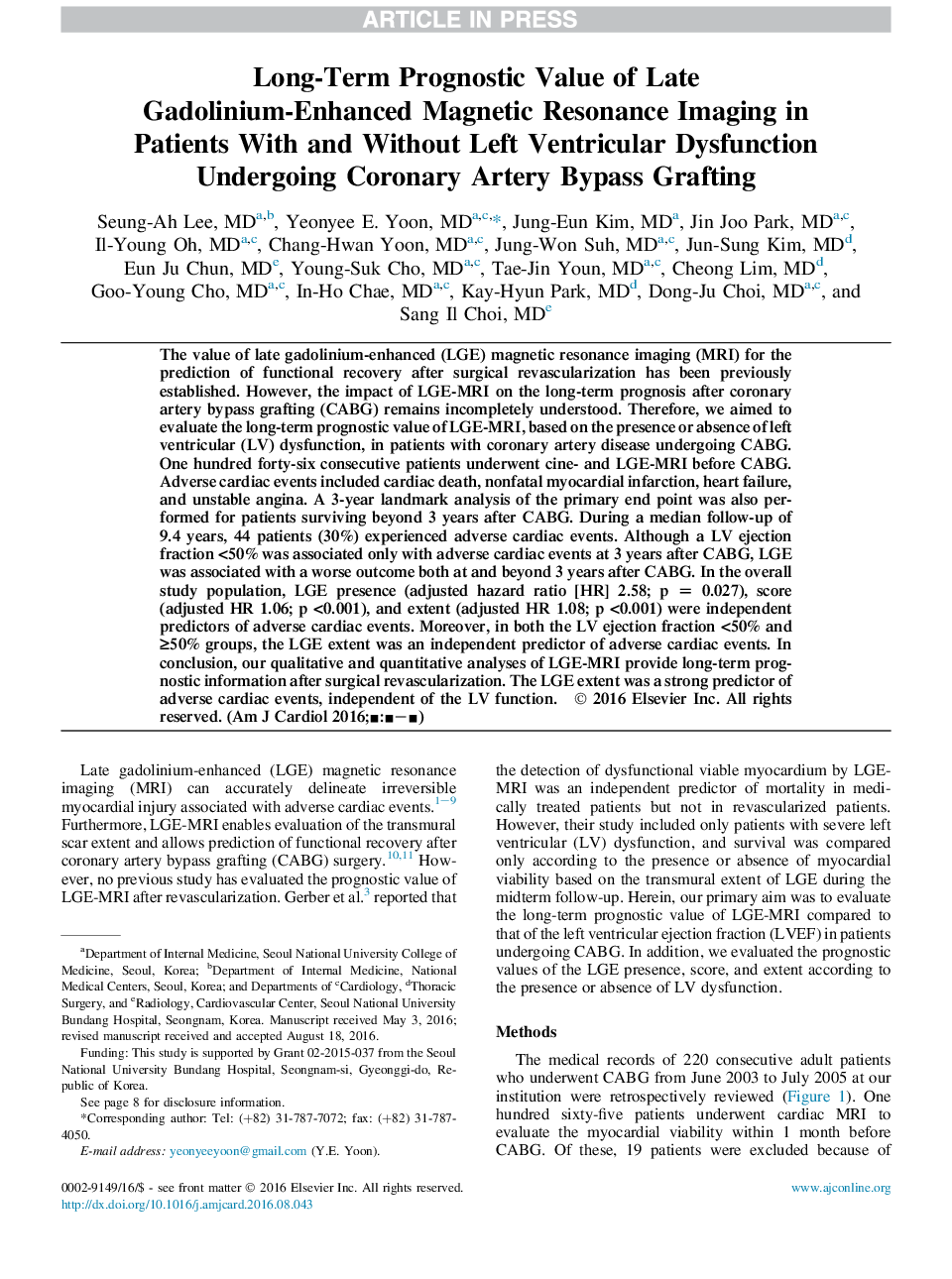| Article ID | Journal | Published Year | Pages | File Type |
|---|---|---|---|---|
| 5595391 | The American Journal of Cardiology | 2016 | 8 Pages |
Abstract
The value of late gadolinium-enhanced (LGE) magnetic resonance imaging (MRI) for the prediction of functional recovery after surgical revascularization has been previously established. However, the impact of LGE-MRI on the long-term prognosis after coronary artery bypass grafting (CABG) remains incompletely understood. Therefore, we aimed to evaluate the long-term prognostic value of LGE-MRI, based on the presence or absence of left ventricular (LV) dysfunction, in patients with coronary artery disease undergoing CABG. One hundred forty-six consecutive patients underwent cine- and LGE-MRI before CABG. Adverse cardiac events included cardiac death, nonfatal myocardial infarction, heart failure, and unstable angina. A 3-year landmark analysis of the primary end point was also performed for patients surviving beyond 3 years after CABG. During a median follow-up of 9.4 years, 44 patients (30%) experienced adverse cardiac events. Although a LV ejection fraction <50% was associated only with adverse cardiac events at 3 years after CABG, LGE was associated with a worse outcome both at and beyond 3 years after CABG. In the overall study population, LGE presence (adjusted hazard ratio [HR] 2.58; p = 0.027), score (adjusted HR 1.06; p <0.001), and extent (adjusted HR 1.08; p <0.001) were independent predictors of adverse cardiac events. Moreover, in both the LV ejection fraction <50% and â¥50% groups, the LGE extent was an independent predictor of adverse cardiac events. In conclusion, our qualitative and quantitative analyses of LGE-MRI provide long-term prognostic information after surgical revascularization. The LGE extent was a strong predictor of adverse cardiac events, independent of the LV function.
Related Topics
Health Sciences
Medicine and Dentistry
Cardiology and Cardiovascular Medicine
Authors
Seung-Ah MD, Yeonyee E. MD, Jung-Eun MD, Jin Joo MD, Il-Young MD, Chang-Hwan MD, Jung-Won MD, Jun-Sung MD, Eun Ju MD, Young-Suk MD, Tae-Jin MD, Cheong MD, Goo-Young MD, In-Ho MD, Kay-Hyun MD, Dong-Ju MD, Sang Il MD,
